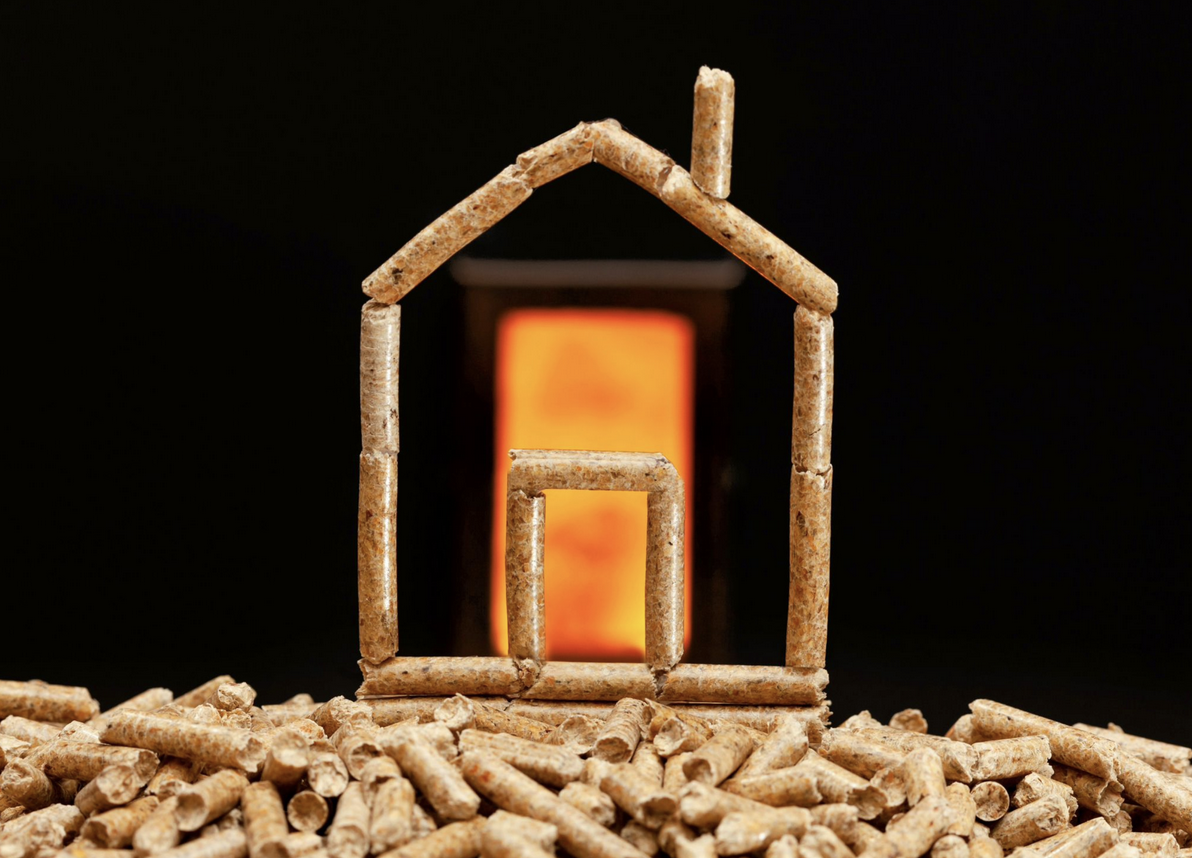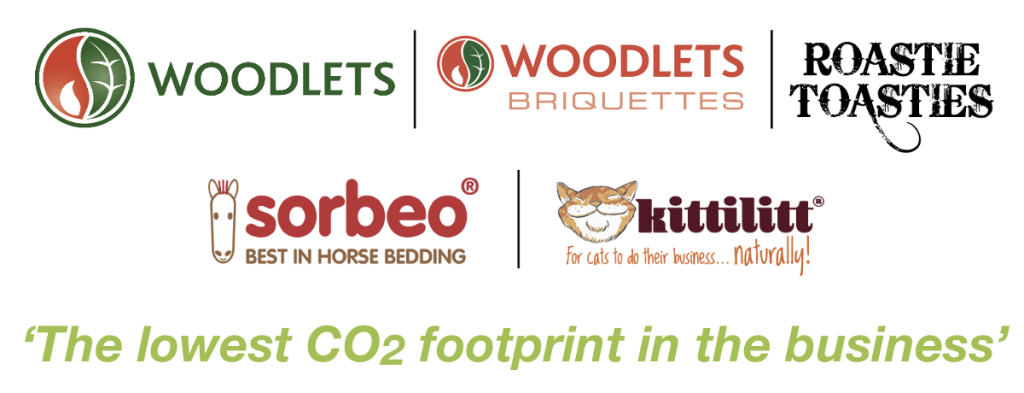While the price of heating oil and mains gas increase three fold, little thought is given to sustainable heating alternatives to off-grid homes and businesses in rural areas of the UK. Homes which are often old and draughty with poor insulation are unsuitable for ground and air source heat pumps which rely on ambient, consistent temperatures.
UK-based Land Energy plays a key role in providing wood pellet heat to rural areas as wood pellet heating is the only sensible – sustainable – alternative to these rural properties.
Established in 2009, Land Energy now manufactures over 100,000t of wood pellets and 46,000t of wood briquettes annually out of its plant in South Ayrshire, Scotland. It supplies the rural market and domestic and small commercial heat applications. 100% of its woody biomass feedstock is sourced from forests within a 60-mile radius of its factory, in south west Scotland and it is staffed by over 85 local employees.
It’s pellet brand Woodlets is the UK’s favourite with a 30% stake in the UK market.
Wood pellet fuel is a renewable resource that absorbs carbon dioxide during the fibre source’s natural growth cycle. This is considered to be a benefit in helping to mitigate global climate change by effectively reducing the carbon dioxide emissions that otherwise would be attributed to the use of wood pellet fuel.
But wood pellet properties vary greatly depending on the raw material source used in their manufacture and where the pellets originate.
Land Energy ‘home-grows’ its wood pellets by sourcing local wood. Its UK supply chain ensures continuous manufacture at a time when imported supplies cannot be guaranteed.
DEFRA’s message is that by burning anything – wood, coal, oil or gas – local air quality is affected and we create smoke – smoke is carbon – carbon goes up the chimney and we have pollution.
But we should remember that there is no such thing as a ‘squeaky clean’ sustainable heating: all forms of renewable energy technology carry a carbon debt (whats yours?) – including wind turbines, solar panels, electric cars – even heat pumps.
Small-scale, localised biomass boilers producing heat are about 85% efficient.
What the Department for Business, Energy and Industrial Strategy (BEIS) has achieved globally has been beneficial for all Renewable Heat Incentive (RHI) holders. As a result, people have gone a long way in reducing their carbon emissions. However, there is a lot more to be done. Emissions are of far higher concentration in gas and heating oil than those of wood pellet emissions.
A first for sustainable heating
Land Energy – ‘the lowest CO2 footprint in the business’ (See Auditel report 2024)
There are numerous sources of biomass available but timber is the largest – and in the UK, the sector is very tightly regulated. Any felling activity requires a licence and all trees have to be re-planted within 12-24 months.
Land Energy’s biomass production is sustainable and bio-diverse. It has short, secure supply chains coupled with a highly-efficient production process to make solid, energy-dense, biomass fuels.
Managed forestry involves thinning out trees. All good timber is sold to sawmills and timber merchants. The left-over cuttings – or forest floor ‘brash’ – and rejected logs are turned into energy by Land Energy and other smaller UK biomass producers.
Using locally-grown, locally-harvested wood and generating heat and power from brash left on the forest floor, is the most efficient and economic use of a sustainable local resource.
Land Energy produces its own power, generating a massive 18.2 GWh pa using its own biomass boilers – the equivalent to providing 6,750 homes with heat for a whole year.
Even Greenpeace has backed this approach stating, ‘using mill waste and residue, such as sawdust and non-commercial wood chips, to replace fossil fuels for local, small-scale heating systems is the most efficient use of woody biomass’ (Source: Greenpeace 2011 ‘Fuelling a Biomess’)
True, economically home-grown wood pellets are best for the UK market and sustainable heating.
The UK needs home-grown biomass energy if it is to reach its target of net zero carbon emissions by 2050.
Land Energy’s accreditations:
✅ ENPlus A1
✅ Ready to Burn
✅ FSC®
✅ Grown in Britain
✅ UNESCO Biosphere – the only globally-recognised badge for sustainability
Land Energy pellets offer superior quality and performance compared to others for several reasons:
Higher Efficiency: Land Energy pellets are engineered to burn more efficiently, providing greater heat output and longer burn times compared to SDL pellets. This means you get more warmth for your money, resulting in better value.
Consistent Quality: Land Energy maintains strict quality control standards throughout the production process, ensuring that every pellet meets high-quality standards. This consistency results in reliable performance and fewer issues such as clumping or jamming in pellet stoves or boilers.
Sustainability: Land Energy pellets are made from sustainably sourced wood, making them an environmentally friendly heating option. By choosing Land Energy pellets, you’re contributing to a greener, more sustainable future.
Reduced Emissions: Land Energy pellets are designed to produce lower emissions compared to SDL pellets, promoting cleaner air and reducing environmental impact.
Trusted Reputation: Land Energy has built a reputation for excellence in the pellet industry, trusted by consumers and professionals alike for their top-notch products and customer service.
Overall, Land Energy pellets and briquettes offer a superior sustainable heating experience with higher efficiency, consistent quality, lower emissions, and a trusted reputation, making them the preferred choice UK-wide
Check out our brands:



